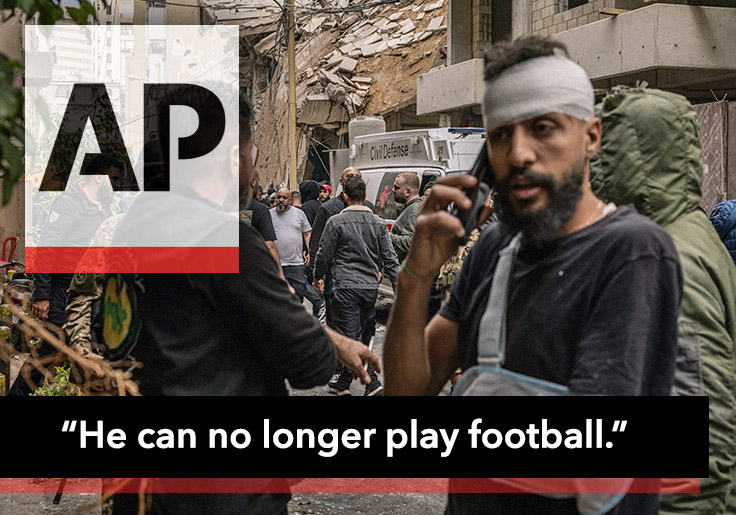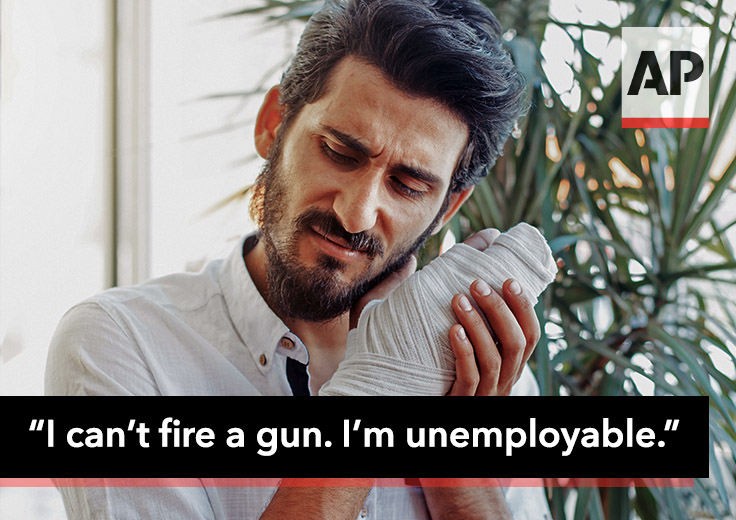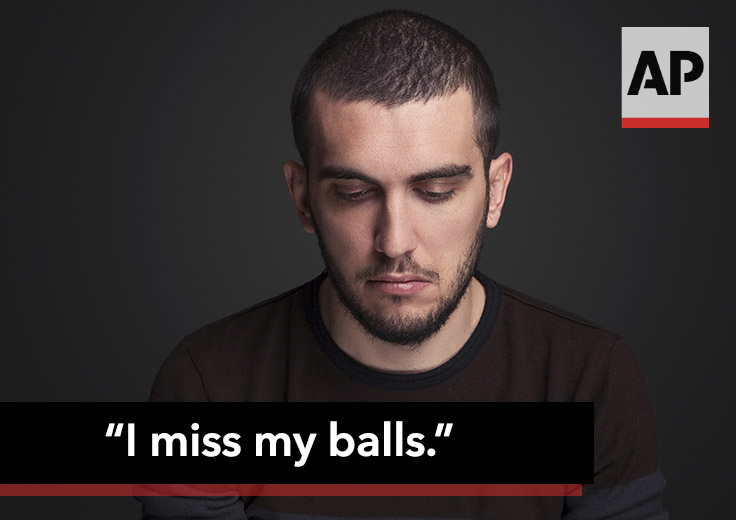Media outlet laments suffering of terrorists whose athletic careers were derailed by Jews

The Associated Press reached new heights of terrorist sympathy on Wednesday by publishing a compassionately credulous report on “the human toll of Israel’s exploding-pagers attack targeting Hezbollah,” the Iranian-funded terrorist group. The AP contacted the Hezbollah public relations department and was given the contact information of several “victims” of the September 2024 attack who agreed to discuss their “slow, painful path to recovery.”
Shockingly enough, of the six people the AP interviewed, only one was a young man who admitted to being a terrorist. The rest were women, children, and an innocent “preacher” who taught “religious lessons” to Hezbollah members. The alleged man of faith lost three fingers and was blinded when his terrorist pager exploded. “It was not immediately clear why he had one,” the AP reports with remarkable credulity.
Doing what comes naturally, the AP makes sure to note that the United Nations, a thoroughly unserious organization, and other so-called human rights groups have denounced Israel’s attack—without a doubt the most precisely targeted anti-terrorism operation in history—as an “indiscriminate” war crime.
Readers are apparently expected to have a sympathetic reaction toward “victims” such as Mahdi Sheri, a 23-year-old Hezbollah terrorist who was preparing to deploy to the Israel border and fire rockets at civilians. His beeper went off, and he went to check for updates from his terrorist bosses. He lost one eye in the explosion, and eventually went blind in his other eye. The terrorist laments that he “can no longer play football.” He’s depressed because his injuries have made it “impossible now to find a role alongside Hezbollah fighters.” Tough break, dude.
“Some children now fear coming near their fathers,” the AP writes of the suffering these terrorists have been forced to endure.

The AP mournfully recounts the injuries suffered by women and children, even though Hezbollah admits that “most of those wounded and killed” in the pager attack “were its fighters or personnel.” Most of them refused to answer questions about how they got their hands on a terrorist’s pager. The wire service spoke to a 12-year-old boy who “picked up the pager that belonged to his father,” who was definitely a terrorist because otherwise the AP would have said so. The child was “a member of the Hezbollah scouts,” and excelled at “reciting the Quran.”
The AP interviewed another 12-year-old boy who picked up his father’s pager and lost an eye and several fingers in the explosion. Readers are urged to feel sympathy for the terrorist’s family, which had trouble finding a new apartment. One landlord who saw the boy’s injuries asked them to leave for understandable reasons—terrorists are not ideal tenants.
Two young women also agreed to be interviewed. Sarah Jaffal, 21, is described as a “driven, inquisitive woman [who] leans on her faith to summon patience.” She was wounded after picking up a pager “belonging to her relative.” Zeinab Mestrah, 26, was injured by “the pager of a relative” in Hezbollah. She was photographed next to a portrait of Hassan Nasrallah, the Hezbollah terror boss who was killed in an airstrike days after the pager attack. Sadly, her injuries have “delayed plans to find a new career.”
The story presents a compelling case for not joining a terrorist organization and exposing one’s family to injury and hardship. But the AP was exclusively focused on the “suffering” caused by Israel. Regrettably, the outlet could not find any terrorists who suffered “injuries to their crotch areas” during the pager attack. There were many such cases, according to reports, and they deserve to tell their stories.


















